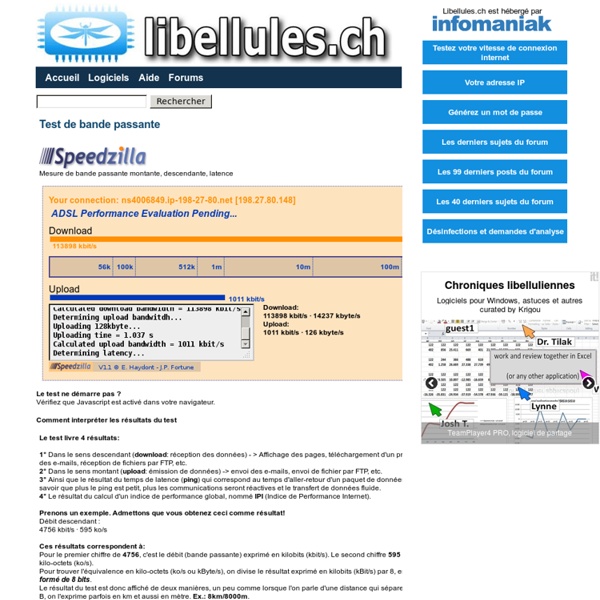Test de Bande Passante

directappel - Un numéro d’appel en France pour vous joindre partout dans le monde.
Skynet.be
Related:
Related:



